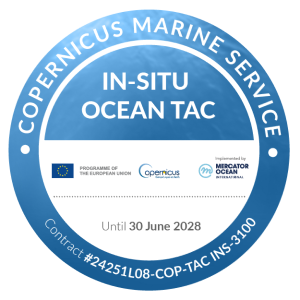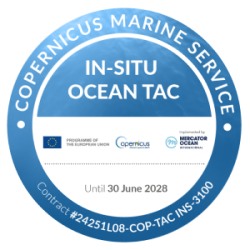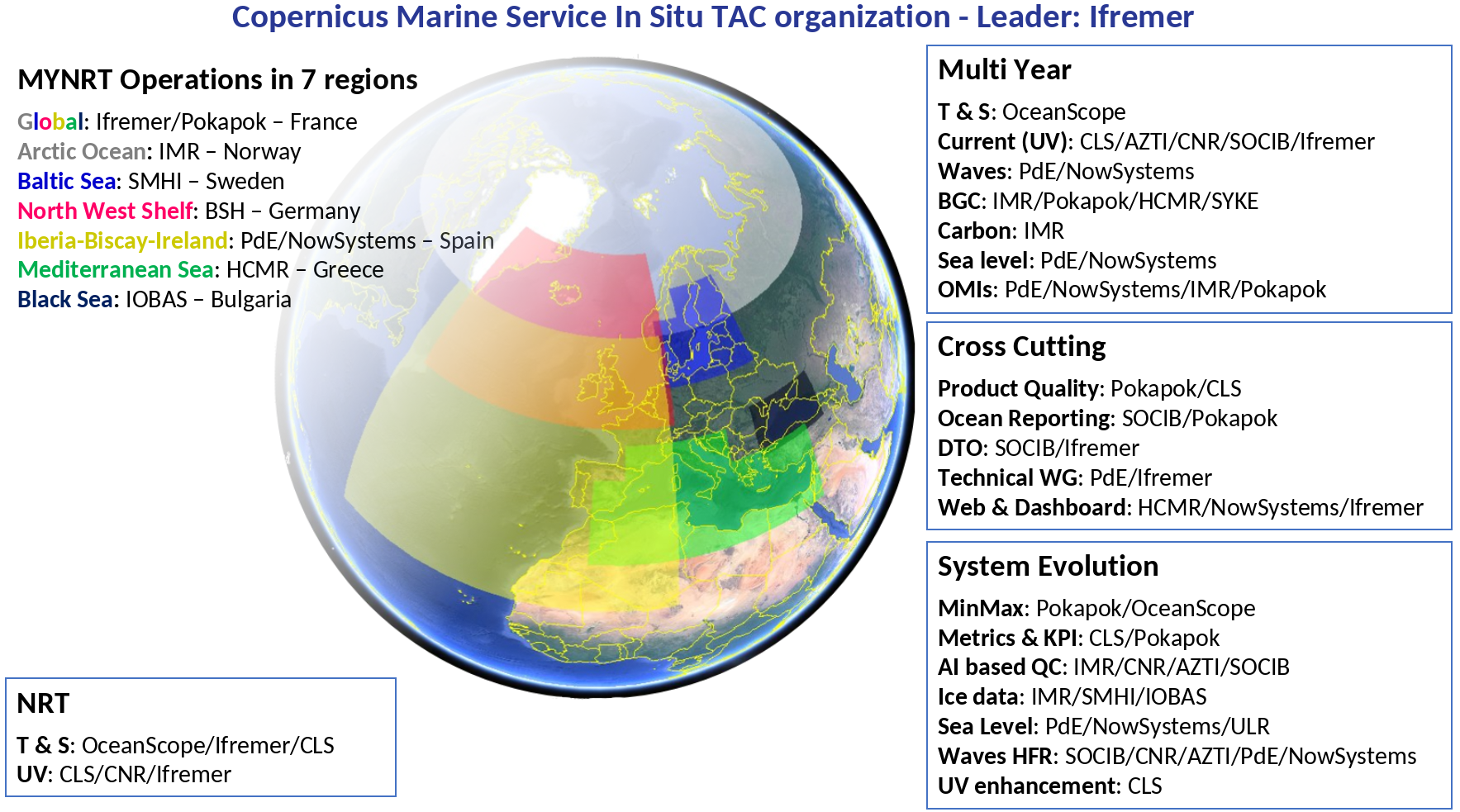The Copernicus Marine Service, led by Mercator-Ocean is based on a distributed model of service production, relying on the expertise of a wide network of participating European organisations involved in operational oceanography.
The Service encompasses two kinds of production centres:
- 1. Monitoring and Forecasting Centres (MFCs), charged with maintaining numerical models of the ocean. There are seven MFCs: six for regional seas and one for the global ocean
- 2. Thematic Assembly Centres (TAC), which are tasked with the collection of ocean observations, both in situ (water column) and satellite observations.
The In Situ TAC (General Presentation) is the component of the Copernicus Marine Service which ensures a consistent and reliable access to a range of in situ data for the purpose of service production and validation.
In Situ TAC has two main objectives:
- 1. To collect multi-source, multi-platform, heterogenous data, perform consistent quality control and distribute it in a common format (NetCDF) and in near-real-time (within 24 hours) to the Marine Forecasting Centres (MFC) and to any external Copernicus Marine Service users, for assimilation into their numerical ocean models.
- 2. To supply the MFCs and downstream users with re-processed 25-50-year products in delayed mode. In addition to the near-real-time products, these delayed-mode products are useful for model validation or assimilation in ocean reanalysis and climate studies.
16 institutes have joined their expertise to provide an in situ service compliant with the Copernicus Marine Service requirements:
- In Situ TAC is coordinated by Ifremer (France)
- Regional in situ data production units:
- Puertos del Estado (Spain) for the Iberia-Biscay-Ireland region
- HCMR (Greece) for the Mediterranean Sea
- IOBAS (Bulgaria) for the Black Sea
- IMR (Norway) for the Arctic
- SMHI (Sweden) for the Baltic Sea
- BSH (Germany) for the North West Shelves region
- Coriolis (France) for the global ocean
- And also for cross-cutting activities:
- SOCIB (Spain) for Communication issues and Ocean State Report issues
- IMR (Norway) for Product Quality policy and Biogeochemical issues
- CLS (France) for surface current products and global Reprocessed product
- OceanScope (France) for global Reprocessed product
- SYKE (Finland) for Biogeochemical issues
- MetOffice (UK) for global Reprocessed product
- OGS (Italy) for Mediterranean and Black Sea Reprocessed products
- University of Bergen (Norway) for Carbon issues
- Azti (Spain) for HF Radar issues
Contacts :
- instacco@ifremer.fr (project coordinators)
- cmems-service@ifremer.fr (operations)


